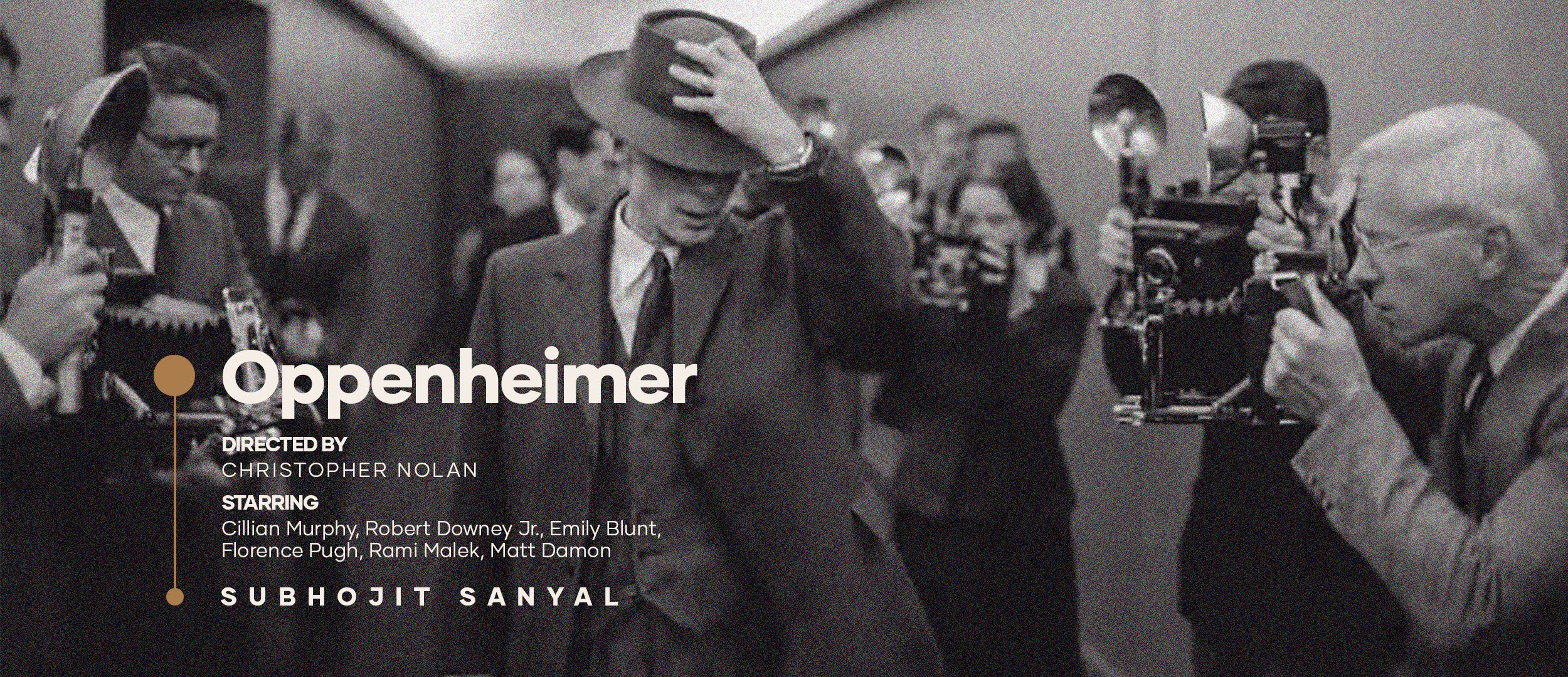
J Robert Oppenheimer was not a God.
But he damn well should have been one.
Christopher Nolan’s epic masterpiece, Oppenheimer, marks on celluloid the life of J Robert Oppenheimer, the man credited with leading the Manhattan Project that made the world’s first atomic bomb. The same atomic bomb that was first tested in the barren vastness of New Mexico, USA, and subsequently, dropped on the Japanese cities of Hiroshima and Nagasaki — the only two known instances of a weapon of mass destruction being used on the planet.
But the story we are told is a lot more than just that. It is about one brilliant man’s growing conscience in the wake of the utter destruction and mayhem that his own creation brought upon the world, his realisation that what he had unleashed upon mankind would also one day annihilate the planet, the end of humankind as we know it. And that realisation came at a very hefty price to the scientific genius.
A nation’s hero was soon turned into a villain by the mechanizations of political power and for a man who had brought an end to a World War by means of higher level physics and math, he was completely unprepared how to deal with his own destruction. A man — a deeply flawed man — Oppenheimer could only be true to his science, to his country, and yet, neither of them was true to him at the end. As Albert Einstein succinctly puts it to Oppenheimer at the end, the awards that he receives were never really meant for him, but for the others who gave him the award. Because he alone knows the price of his achievements, something others may well never understand the extent of. And he alone knows the true extent of the ‘chain reaction’ that his work has set off.
Nolan is most naturally at the top of his game with this movie. This is no Interstellar or Inception — because here he isn’t dealing with a spectacle, he’s dealing with a man and his life and works. This is new territory for Nolan and he rises to the challenge to create something visually exhilarating, while also keeping his own personal charisma beautifully woven into the narrative. The three overall narratives that keep moving up and down in the timeline — be it the Manhattan Project itself, Oppenheimer’s invasive security clearance kerfuffle, and Lewis Strauss’ own tryst with destiny, all have their own look and feel, they have their own personal signature and while it is easy to see them in their individual rights, all these storylines mingle exceedingly well to tell one whole story. And that is where Christopher Nolan’s true genius lies.
Cillian Murphy has always been a great actor. He enters into any role he chooses like a chameleon and churns himself into the characters he plays. And this holds even more true for a character like Oppenheimer. He deftly erases any line that existed between himself and his character and for the entire three hours that you see him on screen, Murphy is Oppenheimer and Oppenheimer is Murphy. He was greatly assisted in creating this brilliant illusion by a cast of gifted actors — Florence Pugh, Jack Quaid, Rami Malek, Josh Hartnett, Tim Conti (who looked more Einstein than Einstein himself) — and Emily Blunt, who’s casting was completely justified in those last five minutes when she testified at the security hearing — what a powerful actor she really is.
But make no mistake about it — if this movie had to win but just the one award for acting, then that Oscar would have to be taken home by Robert Downey Jr for the role of Lewis Strauss. For a man who has since become synonymous with the Marvel Universe, as Tony Stark/Iron Man and all that that particular character has come to mean to audiences across the globe, people keep forgetting movies like Chaplin, where Robert Downey was much more the actor than the star he was destined to have become — and became. But with the portrayal of Strauss, Robert Downey is back to where he always belonged — at the pinnacle of acting supremacy, a place that he always belonged to from the time he started his career as an actor. Robert Downey Jr is what makes Oppenheimer the movie that you cannot take your eye off.
This is not a light-hearted, fun-3-hour movie at all. This is a movie that sets of a chain reaction that makes you ponder about our collective history and our future, about the place of J Robert Oppenheimer in it, the man he was and the God he will most likely turn out to be when his prophecy comes true —
I am become Death,
the destroyer of worlds.
